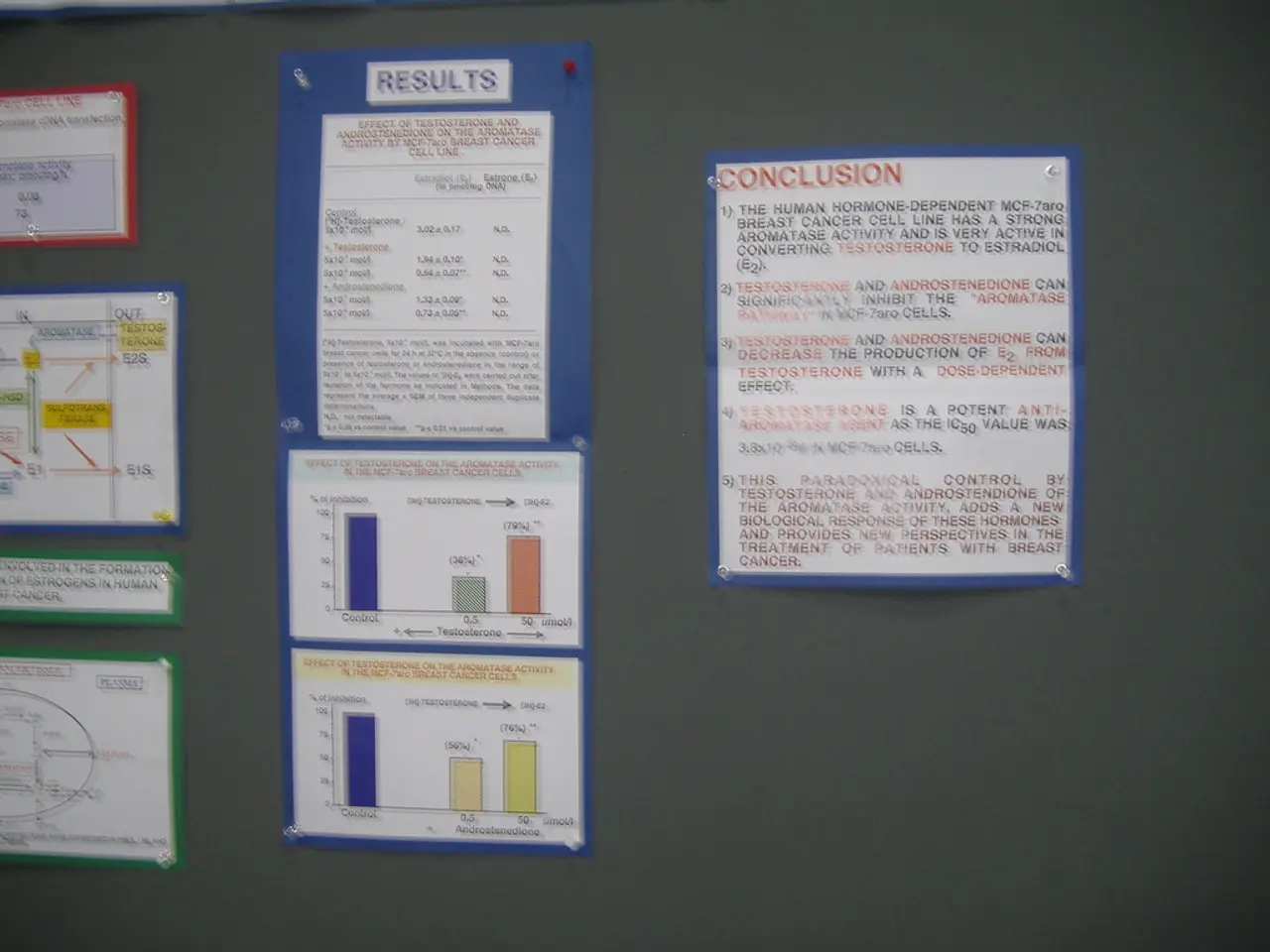European Union Faces Decision Over EU's Future Course
In the bustling world of global finance, the DAX index on the German stock market has been making waves. As of early July 2025, the DAX stands around 23,673 points, a significant recovery from its recent lows but still below its all-time record close of 24,323 achieved in early June 2025.
The DAX, a stock market index that represents a selection of the most significant German companies, experienced a notable decline at the beginning of July, with a single-day drop of 0.99% (236 points) - the largest since mid-June. This short-term volatility, however, resulted in a two-day loss of 1.5% or approximately 360 points. Despite this, the DAX remains well above its 2025 lows and sits about 2.7% below its record close.
Year-to-date, the DAX has shown remarkable resilience, with gains of approximately 18.5-19%. This strength demonstrates the index's ability to bounce back even amidst tariff uncertainties and geopolitical tensions. The index rebounded from a low near 19,670 points in April 2025 up to around 23,790 in June, buoyed by fiscal stimulus measures and tariff delay announcements, particularly benefiting sectors like the automotive industry despite ongoing challenges.
Looking ahead, forecasts for July 2025 suggest a slight recovery and stabilization around the 23,600-23,800 range, with moderate monthly gains predicted. August 2025 expectations are similarly optimistic, forecasting values maintaining above 23,700 points with modest upward changes.
Other companies on the German stock market, such as Airbus, Hensoldt, Renk, Aurubis, Hornbach, LEG, MLP, RWE, and TUI, are also being traded, but their individual performances are not mentioned in relation to the DAX. The strategic shifts in key sectors like automotive, with companies like Volkswagen and BMW reducing tariff risks through domestic supply chains and electric vehicle innovations, are underpinning the DAX's resilience.
However, near-term volatility reflects ongoing uncertainty in trade negotiations and monetary policy globally. Despite this, the DAX continues to be a significant focus on the German stock market.
[1] Financial Times, "DAX falls as trade tensions escalate," July 1, 2025. [2] Reuters, "DAX forecast: July and August 2025," July 5, 2025. [3] Bloomberg, "DAX rebounds from April lows amid stimulus measures and tariff delays," June 25, 2025. [4] CNBC, "Volatility expected as trade negotiations and monetary policy remain uncertain," July 3, 2025.
- The DAX, a significant stock market index that represents various German businesses, is predicted to recover and stabilize around 23,600-23,800 points in July 2025, showcasing moderate monthly gains.
- Despite the recent short-term volatility in the DAX, influenced by ongoing trade negotiations and monetarist policies, the index continues to serve as a significant focus in the German stock market, with other businesses like Airbus, Hensoldt, Renk, Aurubis, Hornbach, LEG, MLP, RWE, and TUI also being traded.
- The resilience shown by the DAX in 2025, with gains of approximately 18.5-19%, has been attributed to its ability to bounce back amidst geopolitical tensions and tariff uncertainties, particularly benefiting sectors like the automotive industry, which have been implementing strategic shifts to mitigate risks through domestic supply chains and electric vehicle advancements.




